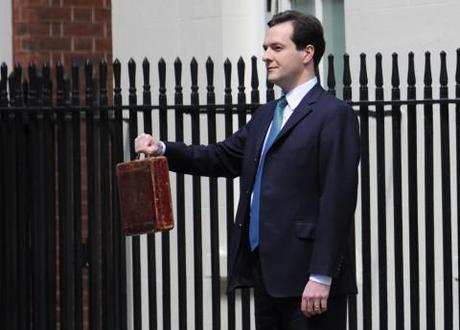
George Osborne: More Budget woes. Photo credit: The Prime Minister's Office.
Fresh from the ‘granny tax’ uproar, the UK government is facing another Budget backlash – this time over proposals to cap tax relief on charitable giving. Chancellor George Osborne announced the measure as part of a move to prevent Britain’s super-rich from using legal loopholes to reduce their income tax bills.
Universities, charities and arts institutions have reacted with fury to the news, claiming the tax relief cap will unfairly hit high-value donors and deter philanthropy.
But given the public’s mounting anger over ‘fat cat’ irresponsible spending and the gap between rich and poor, is it really such a bad idea?
Slander. It is “slanderous” that the government is associating philanthropy with tax avoidance, thundered Nicholas Hytner on The Guardian’s Comment is Free. The proposals will inevitably affect charitable giving: “Unsurprisingly, a number of donors are having to reconsider what they hoped to be able to give. Like all of us, they calculate what is going to be left behind after they’ve given, and they donate accordingly.”
Hysteria. Reasoned arguments over the issue have been drowned out by hysteria, said Mary Dejevsky in The Independent. Dejevsky pointed out that if super-rich donors truly are motivated solely by philanthropy, nothing should change: “If big donors are sufficiently committed to their cause, there is nothing to prevent them giving as before. If they don’t, does that not suggest that the tax break was, if not being abused, at least a persuasive consideration?” The government should certainly encourage charitable giving – but not at the expense of contributing to the Exchequer through paying tax.
The wrong target. “If our Chancellor really believes that the pressing problem of tax avoidance lies in a culture of unrestrained philanthropy, he is in danger of looking like a rich man who doesn’t understand either and really needs to get out more,” wrote Ken McDonald in The Times (£). McDonald pointed out that the proposal to curb tax relief on charitable giving looks rather odd in a country where “Vodafone has been allowed, by embarrassing Treasury agreement, to avoid a potential £6 billion tax bill, that trillion-dollar Apple pays virtually nothing at all in the UK, and vertically challenged retail billionaires stash nearly everything they have for free in a couple of square miles of trashy Monaco real estate”.
A question of fairness. The current tax relief system effectively means that the super-rich are funding their philanthropy through ordinary taxpayers, wrote Richard Northedge on The Edge blog: “As high charitable relief is a privilege of the well-paid, that means these top earners are asking the lowly-paid to make their donations for them – even to charitable causes of which they disapprove.” Northedge pointed out that some high-profile donors have also benefited from their “philanthropy” through public recognition and honours – but “this was actually the taxpayers’ generosity”.

